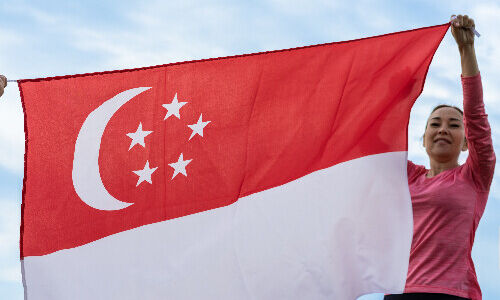Financial Hub Singapore: Surprisingly, Everything Remains the Same
Political elections in Singapore are a delicate affair: they are decisive for the future of the financial centre of this Southeast-Asian city-state, which has risen to the ranks of global high finance in just a few decades.
Today, more than ever, Singapore, alongside New York, London, Switzerland, and Dubai, is one of the first addresses of the international financial elite. Recent geopolitical tensions have further increased its importance, for the city-state has been synonymous with stability, reliability, quality, and competence for 60 years. A government that preserves and develops these values is therefore crucial.
For six decades, the People’s Action Party (PAP) – the party of the late founding father Lee Kuan Yew, who died in 2015 – has governed. Despite occasional «tremors,» this has never changed, thanks not least to Lee’s legacy of transforming Singapore from a poor developing nation into an exemplary welfare state. That achievement has so far persuaded Singaporeans to cast their votes overwhelmingly for the PAP.
Little-Known Prime Minister
When Lawrence Wong took office as prime minister last year, a turning point seemed possible. As the successor to Lee Hsien Loong, son of the nation’s founder, Wong was the first premier who did not come from the innermost circle of the founding generation. At the same time, because of his comparatively short political career, he lacked the deep-rooted name recognition of his predecessors. The outcome of this weekend’s parliamentary elections therefore, appeared wide open.
Additional sources of uncertainty compounded this: social media now create data flows that never existed before, previously granting the ruling party almost absolute control over the public narrative. In this election, the PAP had to learn how to cope with that.
High Inflation
Many signs suggested voters might issue the establishment at least a mild rebuke. Among younger people, the desire is growing for a stronger opposition to provide checks and balances. The vast crowds gathering in the most populous districts shortly before the vote even hinted at a potential political upheaval.
There were plenty of reasons: Singapore’s business-friendly and open policies have recently produced high inflation, particularly in the property market. Rising living costs have stoked public discontent.
Great Uncertainty
Against this backdrop, one might have expected a setback for the PAP in this weekend’s elections. Yet the opposite occurred: the ruling party scored a surprisingly clear victory, while opposition parties achieved only face-saving gains.
Ample evidence suggests that the outcome was shaped by the global uncertainty sparked by Donald Trump; in a nation whose prosperity rests on world trade and a delicate balance between the United States and China, voters ultimately opted for the reassurance of stability and the familiar.
Independent Role
For Singapore’s financial center, in which many Swiss institutions are active, the outcome is a positive signal. It secures, for the time being, the stability and reliability that are especially prized amid geopolitical turmoil.
Singapore has already shown that it can play an independent, autonomous role between the superpowers, and all signs now point to this continuing under the new political reality.




























